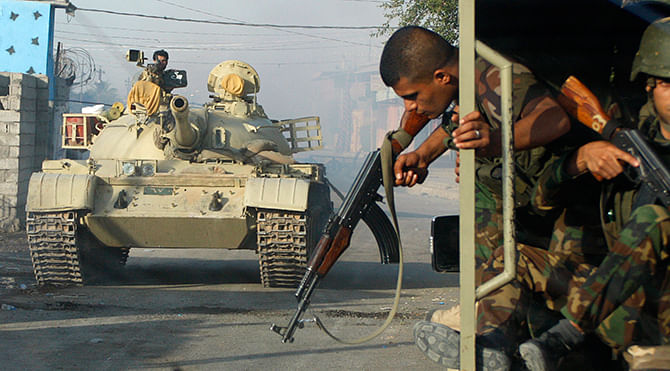Iraq offers air support to Kurdish fighters
Iraq offers air support to Kurdish fighters

Iraqi Prime Minister Nouri Maliki has ordered the air force to provide support to Kurdish Peshmerga forces fighting Sunni militants in the north.
It comes after the Islamic State (formerly known as Isis) seized the town of Zumar and two nearby oilfields from Peshmerga forces on Saturday.
IS also took over the town of Sinjar near the Syrian border on Sunday.
Kurdish forces said they were planning a counter-offensive and reports on Monday said Zumar had been retaken.
Militants seized large parts of northern Iraq from government control in June.
In a statement on Monday, Iraqi army spokesman Qassem Atta said: "The commander in chief of the armed forces has issued orders to the leadership of the air force and the army's aviation units to provide air support to Peshmerga forces."
Kurdish leaders have not yet responded to the offer.
Earlier, a Kurdish official told Reuters news agency that Peshmerga forces had been overstretched but were now calling in large numbers of fighters to hit back.
"It is a very dangerous situation for the region. Something needs to be done soon," the official said.
The UN said tens of thousands of people from Iraq's minority Yazidi community had fled their homes after the Sunni militants captured Sinjar and Zumar at the weekend.
The UN special envoy to Iraq, Nickolay Mladenov, said a "humanitarian tragedy" was unfolding.
Many of those who fled were said to be in exposed mountainous areas near the towns.